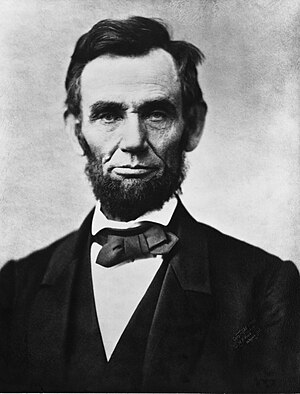Examine timeless principles of leadership
The
habits and personal traits that define great leaders are identifiable,
adaptable and adoptable. Your chosen profession puts you in a position
where you are called to lead: in your firm, in the community, locally,
regionally or nationally. This innovative course gives you specific,
practical guidance on steps you can take to be more than "the person in
charge;” you will be the leader!
Understand how Lincoln's personal traits apply to you
Bud
Krogh has studied the remarkable personal traits that allowed Abraham
Lincoln, a squeaky voiced lawyer from the wilds of Illinois, to
shepherd a nation through its most troubled times. With Lincoln as a
guide, Krogh explores basic leadership principles and draws parallels
to contemporary life in a leadership role.
Explore the characteristics that contemporary lawyer/leaders have applied to problems
Krogh
then expands the discussion to include recent and current
lawyer/leaders. He examines their common (and uncommon) characteristics
and explains how their effective patterns are easily adopted into your
personal leadership style. What they do, you can do.
"Wild Card” Credits
Don't
think you need three ethics credits? Ethics credits are "wild card”
credits that can be applied either as an ethics credit or generally
toward your overall 12-credit CLE requirement.
Special Bonus - $150 discount
If
you also attend "Integrity: Good People, Bad Choices & Life
Lessons from the White House,” also taught by Bud Krogh, being held in
the afternoon at all locations, take $150 off the combined tuition of
both programs.
About our presenter
In
1971, Egil "Bud” Krogh, a 31-year-old White House deputy counsel, was
tasked with finding and stopping security leaks and became head of the
Special Investigations Unit; Krogh and associates familiarly became
known as the " White House Plumbers.” He authorized the burglary of Dr.
Lewis Fielding's office in an attempt to discredit Daniel Ellsberg, who
released his Pentagon Papers without authorization. Krogh says it was
his loyalty to the presidency and his belief that national security was
at stake that led him to authorize the break in and lie to cover it
up. In 1973, before any other involved parties admitted wrongdoing,
Krogh spoke up. Of the various White House-based conspirators, Krogh
alone pled guilty and refused to trade inside
information for a reduced sentence. He was disbarred and went to prison.
In 1980, Krogh successfully petitioned to be readmitted to the bar and
has been in practice since.
In
January 2009, Krogh joined the Center for the Study of the Presidency
and Congress as a senior fellow on leadership, ethics and integrity.
Part of the Center's mission is to promote "civility, character and
inclusive public leadership.” Krogh will contribute to the ethics
training initiative for political appointees and to the National
Consortium for Character-Based Leadership, which focuses on ethics and
leadership for young people. |









No comments:
Post a Comment